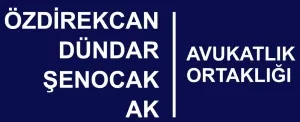In its decision dated 23 June 2022 and numbered 22-28/464-1871 (the "Decision"), as part of the investigation into undertakings operating in the FMCG sector, the Turkish Competition Board (the "Board") decided, with a majority of the votes, not to impose an administrative fine on the grounds that there was no concrete evidence that digital data had been deleted. The decision is important since it differs from the Board's previous decisions on hindering or obstructing on-site inspections, as it sets a high standard of proof in favour of the undertakings being inspected.
The Board's Authority to Examine Digital Data
Following the amendment made to Law No 4054 (the "Law") in June 2020, and the subsequently published Guidelines for the Examination of Digital Data During On-Site Inspections2 (the "Guidelines"), the Turkish Competition Authority (the "TCA") is authorised to conduct on-site inspections at the undertakings' premises if deemed necessary in carrying out the duties assigned to it by the Law.
According to the Article 15 of the Law, competition experts employed by the Board are authorised to (i) examine the books, all types of data and documents of undertakings and associations of undertakings kept on physical or electronic/digital media and in information systems, as well as make copies and take physical samples thereof; (ii) request a written or oral statement on particular issues and (iii) perform on-site examinations of any assets of the undertakings.
Under the Guidelines, during on-site inspections the relevant TCA experts are authorised to examine information systems such as servers, desktops/laptops, portable devices and storage devices such as CDs, DVDs, USBs, external hard disks, backup records and cloud services. TCA experts are also granted access to use forensic tools that allow keyword searches in systems that belong to the undertakings.
The TCA is authorised to examine any digital data relating to the activities of the undertaking being inspected, including those contained in personal mobile devices of the employees to the extent that they concern the undertaking's activities.
Summary of the Decision
It was determined that the WhatsApp application had been deleted on the mobile devices of three employees who were asked to submit to a phone examination during the on-site inspection. In the reinstalled applications, when the correspondence was restored from backup, it was found that there was almost no correspondence.
The Board's Decision states, firstly, that there is a suspicion that data on the mobile devices was destroyed. However, it notes that, as a result of indexing performed on the phones in question, no log record of the WhatsApp application being deleted could be detected. For this reason, no detection could be made by computer forensic devices that the employees of the undertaking had deleted and reinstalled the application or deleted it.
The Board's decision not to impose an administrative fine was based on the fact that the log records of the deletion could not be determined, accordingly there was no concrete evidence that the on-site inspection had been hindered or obstructed.
Two Board members gave dissenting opinions, arguing that an administrative fine should be established instead, making reference to the previous Board decisions. In the dissenting opinion, it was stated that the concrete evidence in question indicates that the WhatsApp application was deleted during the on-site inspection, and that undertaking shall not benefit from doubt about their action in other words the principle of "the suspect benefits from the suspect" will not be applicable here. In the dissenting opinion, it was argued that (i) delaying the examination by 15 minutes (while the experts were left alone in a hall), (ii) the employees handling and taking action on their mobile phone without the knowledge of the experts, despite the fact that they had been taken into custody for examination, (iii) there was no conversation about the reinstalled application, (iv) one of the employees mentioned deleting the WhatsApp application on the grounds that it contained private/confidential correspondence, (v) the undertaking failing to provide any log record or concrete evidence to prove their claims, other than abstract statements, should be considered as sufficient evidence showing that the employees separately deleted the WhatsApp application. It was underlined that the burden of proof lies with the undertakings, if they claim differently.
Past Precedents of the Board on Deleting Digital Data
The Decision is different from the previous Board decisions on the issue, where the TCA applied a lower standard of proof and fined the relevant undertakings for obstructing dawn raids even in the absence of clear evidence.
In the Eti Decision,3 the Board imposed an administrative fine for obstructing an on-site inspection on the grounds that, despite a warning from the TCA personnel not to delete any data, it was found that certain WhatsApp conversations by a director had been deleted after the start of the on-site inspection, as detected by the log history.
In the Medicana Samsun Decision,4 the Board imposed an administrative fine for obstructing an on-site inspection on the grounds that, despite a warning from the TCA personnel, it was found that the general manager of the undertaking deleted chat correspondence on his phone around the time that he left the meeting room to fetch his phone, which he claimed he had left in his car.
In the Çiçek Sepeti Decision,5 the Board imposed an administrative fine for obstructing an on-site inspection on the grounds that the TCA personnel discovered that, after the dawn raid had started, Çiçek Sepeti employees discussed deleting emails exchanged with a certain person and deleted WhatsApp chats.
In the Procter and Gamble Decision,6 the Board imposed an administrative fine for obstructing on-site inspection on the grounds that a company employee had left several WhatsApp chat groups that were work and business related.
In the Unmas Decision,7 the Board imposed an administrative fine for obstructing an on-site inspection because the commercial director of the company deleted WhatsApp chat data during the inspection. Unmas argued that all of the deleted data had been retrieved by the TCA. The Board rejected these arguments and stressed that, if it did not to impose fines in cases where deleted data can be retrieved using forensic tools, this may be construed as rewarding the undertakings involved.
In the HepsiBurada Decision8 dated 13 January 2022, the Board imposed an administrative fine for obstructing an on-site inspection because it was detected that, after the start of the on-site investigation, WhatsApp correspondence and group chats were deleted by employees, and that the HR department of the undertaking sent several messages such as "I will delete them all soon," "you should delete messages," "delete conversations yes, but don't leave groups."
In the HepsiBuradaDecision9 dated 7 October 2022, even though it was determined that some WhatsApp correspondence had been deleted by employees after the start of the on-site inspection, the Board concluded by a majority of the votes that the on-site inspection had not been hindered. In the dissenting opinion, it was mentioned that the decision was not justified as there was evidence to show that deletions had occurred.
Standard of Proof Set by the Administrative Court
In a recent decision10 of the Ankara 2nd Administrative Court (the "Court") related to staying the execution of a fine imposed by the Board for obstructing an on-site inspection, the Court held that the Board's decision was unlawful because the deleted correspondence were accessible from other employees' mobile devices, the deletion process took place on a personal mobile phone and there was no concrete information or document proving that the employee had deleted the relevant correspondence.
Conclusion
The current approach of the Court and the Board requiring a high standard of proof in favour of undertakings is open to discussion, especially as that the Decision was taken with a majority. However, what is certain is that case law of the Board demonstrates the significance of competition law training for all undertakings and the importance for undertakings to inform their employees about the consequences of concealing or deleting any data or documents during the course of an on-site inspection.
Footnotes
1. https://www.rekabet.gov.tr/Karar?kararId=dd4104ad-319f-447d-a009-3ea03ba219c4
2. https://www.rekabet.gov.tr/Dosya/kilavuzlar/yerinde-inceleme-kilavuz1-20201009091644514-pdf
3. Decision of the Board dated 29.04.2021 and numbered 20-24/278-123.
4. Decision of the Board dated 17.06.2021 and numbered 21-31/400-202.
5. Decision of the Board dated 27.05.2021 and numbered 21-27/354-173.
6. Decision of the Board dated 08.07.2021 and numbered 21-34/452-227.
7. Decision of the Board dated 25.01.2022 and numbered 21-26/327-152.
8. Decision of the Board dated 13.01.2022 and numbered 22-03/35-16.
9. Decision of the Board dated 07.10.2021 and numbered 21-48/678-338.
10. Decision of the Ankara 2nd Administrative Court dated 15.04.2022 and numbered 2022/254.
The content of this article is intended to provide a general guide to the subject matter. Specialist advice should be sought about your specific circumstances.



